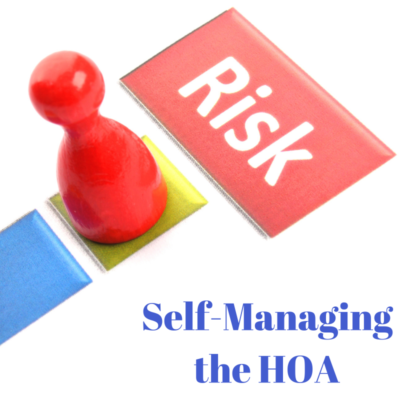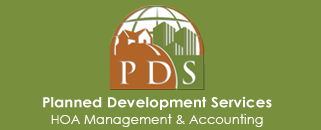
Risks Worth Considering for Self-Managing the HOA
On the surface, managing the homeowners association may seem simple and straightforward. Many HOA boards think they have it all together and can easily manage the HOA on their own. After all, can’t their community be self-managed? Is it required to hire an HOA management company? The answer isn’t that simple and there are factors that need to be considered before going down the road of self-managing the HOA. Unfortunately, there are several significant risks HOA boards take on when they choose to be self-managed. Knowing those risks is important for making a wise decision about your HOA management needs. Some of these risks are minor, but some can cause tremendous financial and legal problems.
Six risks the HOA can avoid when hiring a homeowners association management company:
Risk #1 – Incompliance with the Law
Many self-managed HOAs are breaking the law – or at least not staying compliant – and don’t even know it. For example, conducting a reserve study and annual reserve update, practicing accurate and ethical accounting methods, submitting annual disclosures, and staying up to date with changes made to state HOA laws is a legal requirement of the HOA. Self-managed HOA’s can very easily break the law, completely on accident, simply because no one on the HOA Board knows how to interpret what the laws actually say – or know they even exist!
Risk #2 – Open to a Lawsuit
If your HOA doesn’t have proper insurance coverage, it leaves itself open to potential lawsuits. Do you know how much Director and Officers Liability coverage is needed? Are you familiar with Non-Monetary Claims (2nd most common lawsuit against HOA’s)? It’s also possible that your association has these insurance coverages, but may be under-insured. If your HOA is self-managed, you may not know what coverages you need or who is a reputable insurance agent that can help you. A good homeowners association management company will make sure your HOA does everything it needs to put in place the right kinds of insurance to defray any potential legal action.
Risk #3 – Inefficiency of Operations
There’s a lot of work that goes into managing an HOA community. Between coordinating meetings, preparing HOA board packets, collecting dues and fees, dealing member requests and complaints, negotiating with vendors, maintaining finances…phew! Do you have the time or enough volunteers? Keep in mind – although volunteers have good intentions and can do a lot of great work when placed in the best suited positions (read 5 Personality Types for the HOA Board), they can not match the efficiency and resources of a community manager. A professional community manager makes the success of your HOA operations their full-time pursuit.
Risk #4 – No Accountability or Transparency
When your homeowners association is self-managed, it can be hard to maintain accountability for the HOA Board members. There’s no accountability involved which makes it difficult for community members to stand up the HOA Board. This leaves no room for transparency on either side. Once in a while, there’s often the “my way or the high way” mentality from a heavy-handed Board member that wants to strong arm their way into power and influence. In some cases, this can even result in ethical breaches. A professional HOA management company can offer protection against this.
#4 leads into #5…who’s the advocate for the HOA members (residents)?
Risk #5 – No Advocate for Residents
Sometimes, when conflicts arise between two homeowners, or between a resident and the HOA Board, it’s helpful to have an unbiased mediator jump in. Not everyone is an expert at conflict resolution. An HOA management company provides that mediator – but when you’re self-managed, you risk conflicts with no clear resolutions that satisfy both parties. When members of the homeowners association feel they are being wrongly treated – such as being slapped with an HOA violation when the homeowner didn’t know the rule existed in the first place – there is no one to advocate for them and act as a neutral contact to remedy the situation.
Risk #6 – One Point of Contact
Do you, as an HOA board member, want people calling you at all hours? Probably not. While you could designate a member of the Board as a primary point of contact, as trustworthy as they may put the association at risk by prioritizing tasks and communications by their preference, knowing too much, and again – no accountability if, let’s say, they miss calls due to an overseas vacation. When you hire an HOA manager you have someone from the outside looking in who doesn’t have a personal agenda, and has the time, and accountable measures in place, to address all inquiries.
There are a few other factors involved when it comes to whether or not a homeowners association can successfully be self-managed – such as how involved the board members are, and the size of the community (number of residents) – but ultimately the HOA puts itself at risk when it tries to manage all the complexities of an community (or HOA) association. Our advice – don’t leave yourself open to lawsuits and conflict with members.
